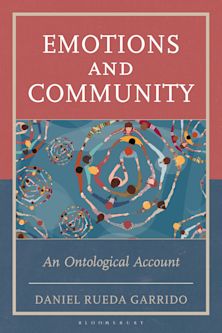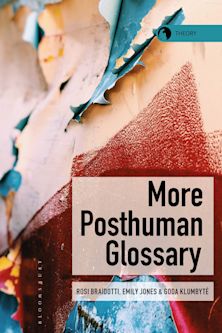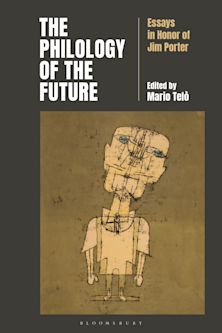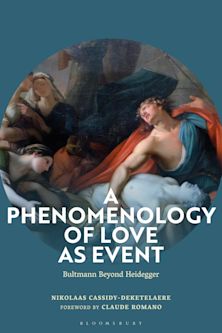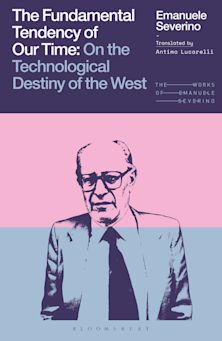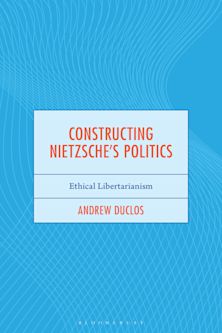- Home
- ACADEMIC
- Philosophy
- Continental Philosophy
- Philosophy of Finitude
Philosophy of Finitude
Heidegger, Levinas and Nietzsche
Philosophy of Finitude
Heidegger, Levinas and Nietzsche
You must sign in to add this item to your wishlist. Please sign in or create an account
Description
Examining the legacies of Heidegger, along with Derrida, Levinas and Nietzsche, Rafael Winkler argues that it is not the search for truth or even contradictions that stimulates philosophical thought. Instead, it is our exposure to the unthinkable or the impossible – to thought's own limits.
An experience of the unthinkable is possible in our encounter with the uniqueness of death, the singularity of being, and of the self and the other. This 'thinking of finitude' also has political implications, as it provides us with a way to talk about, and evaluate, absolute strangeness and, by implication, the absolute stranger or foreigner.
Illuminating Heidegger's writings on the question of ontology, ethics and history, Winkler proves that this encounter with thought's limits is one of the mainstays of the philosophies of difference of Heidegger, Levinas, and Nietzsche.
Table of Contents
Abbreviations
Introduction
Chapter 1. Death, the Impossible
1. Introduction
2. Perishing and demise
3. Is dying possible?
4. Singularization
5. Schizophrenia
6. Mourning
Chapter 2. Self and Other
1. Introduction
2. Vanquishing death
3. Alterity
4. The call
5. Guilt
6. Responsibility
Chapter 3. Figurations
1. Introduction
2. Proximities
3. The feminine welcome
4. The absolute arrivant
Chapter 4. Dwelling
1. Introduction
2. The earth
3. The gods
4. Antigone
5. Holy mourning
6. The proper and the foreign
7. Guestfriendship
Chapter 5. Beyond Truth
1. Introduction
2. Truth and error
3. Justice
4. Naturalism
5. The end of metaphysics
6. The will to truth
7. Self-discipline
8. Schein
Chapter 6. Substance
1. Introduction
2. The standard hypothesis
3. Essence
4. Substance
5. Rhetoric
6. Metaphor
Bibliography
Product details

| Published | 23 Aug 2018 |
|---|---|
| Format | Ebook (Epub & Mobi) |
| Edition | 1st |
| Extent | 208 |
| ISBN | 9781350059375 |
| Imprint | Bloomsbury Academic |
| Publisher | Bloomsbury Publishing |
About the contributors
Reviews
-
Through a compelling and illuminating study, Rafael Winkler asks whether “uniqueness” is a possible experience and how it should be thought. He deals with this concept in a variety of ways: the uniqueness of being, the self, the other human being, death, and responsibility for the other. By situating itself at the limits of thought, the book presents new facets of the philosophy of absolute difference. Readers will find much to ponder as the book also calls for an engaged reflection on a highly contentious problem: finitude.
Gabriel Riera, Associate Professor of Literary Studies, University of Illinois at Chicago, USA
-
A unique, original, and very welcome contribution to philosophical and literary studies of the self, experience, and singularity. Written with an admirable rigour in explication and analysis, a lucidity in expression, and an always cogent line of reasoning, Philosophy of Finitude explores the limit experiences of the 'I' through the focus on Heidegger, Levinas, and Nietzsche, that produces exciting fascinating new readings both of selfhood and identity.
Julian Wolfreys, Professor of English, University of Portsmouth, UK

ONLINE RESOURCES
Bloomsbury Collections
This book is available on Bloomsbury Collections where your library has access.












